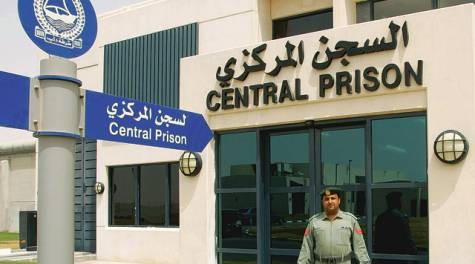Late last month, the International Centre for Justice and Human Rights (ICJHR) was made aware that retirement pension payments to detainees in the United Arab Emirates (UAE) prison, al-Razeen, have been suspended. The decision to deny retirement pensions to detainees is just another aspect of the broader systematic abuse within the Emirati prison system.
Following the initial suspension of pension payments, retired detainees in al-Razeen were asked to provide valid passports in order for their monthly payments to continue. Many of the detainees were further denied pension due to their documents being expired – likely expiring at some point during their detention. The families of these prisoners have completed renewal applications, yet Emirati authorities refuse to allow the passports to be renewed. It is evident that declining efforts to issue retirement funds to retired detainees is a deliberate form of punishment by the UAE government against prisoners and their families.
The adversities resulting from withholding funds extends further than the retired detainee, as it directly affects the families of those imprisoned. Often times, the male figure in a household is the sole provider for his family. Wives and children that rely on the retirement pension of their imprisoned husband or father are left to struggle without income. Furthermore, UAE authorities have restricted the wives of those imprisoned from renewing their own identification documents, refused to issue birth certificates for their children, and threatened them with denaturalization. Impeding on the rights of detainees’ children is in direct violation of the United Nations (UN) Convention on the Rights of the Child, including by impacting their freedom of movement and right to identity documents.
The United Arab Emirates is no stranger to the ill-treatment of prisoners, many of whom are arbitrarily detained human rights defenders. According to the International Campaign for Freedom in the UAE (ICFUAE), there are over 200 political prisoners being held in UAE prisons for peacefully exercising their right to free speech and expression. Al-Razeen Prison, specifically, is known as the Guantanamo of the UAE – where prisoners suffer various forms of torture by prison staff such as prolonged isolation, beatings, sexual harassment, being exposed to extremely hot or cold weather, and being forced to listen to music at extremely loud volumes throughout the day and night. With countless acts of human rights violations, it comes as no surprise that UAE authorities have decided to halt retirement pensions from reaching al-Razeen’s retired prisoners and their families.
The Emirati government should immediately resume the disbursement of retirement pensions to all imprisoned retired detainees and their families, as well as allow them to renew their identity documents to ensure the social and economic security of dependent wives and children.
Mary Jomia is an Advocacy Intern with ADHRB





